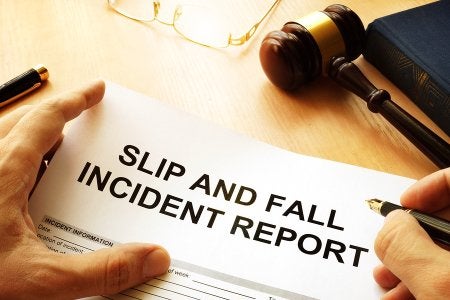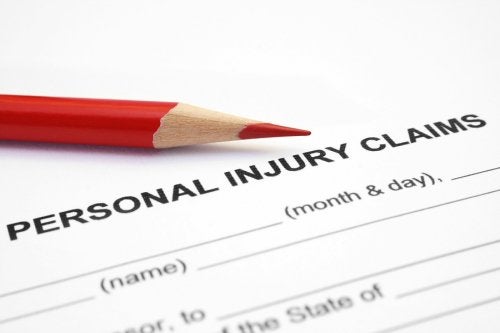-
Will My Retirement Savings Go Through Probate?
Probate is the legal process of managing and distributing a deceased person’s estate in accordance with his or her last will and testament, or with the laws of intestate succession. When individuals consult attorneys in Tracy or Manteca to handle estate planning, probate is often a top concern because it can be lengthy and complicated for the surviving heirs. The short answer is that no, your retirement savings won’t go through probate—but there are exceptions, and you should consult your lawyer about them.

Transferring Assets to Beneficiaries
Your estate planning process should include designating beneficiaries for certain accounts, or updating beneficiaries you’ve already designated. These accounts do not pass through probate. All of the assets in them will be transferred to the beneficiary upon your death. Even if your will specifies that your 401(k) will go to your children, if the designated beneficiary is someone else, that person will receive it. For this reason, you should update your beneficiary designations whenever life circumstances change. Of course, if you neglect to designate any beneficiaries, the account will pass into probate.
Designating Alternate Beneficiaries
An alternate beneficiary is someone who will inherit the assets in the event that the primary beneficiary can’t. It’s always good practice to name an alternate beneficiary. Otherwise, those assets will go into your estate and through probate. Hypothetically, Frances and Bernard are a married couple, and they have each left their assets to each other. They both die in a car accident. Lacking alternate beneficiaries, their retirement accounts pass into probate. Their adult children won’t receive those assets until the process is complete.
Naming Your Spouse
California is a community property state. This means that half of the assets you contributed to your retirement account actually belong to your spouse. If you name your spouse as the primary beneficiary, there’s no problem. Otherwise, your spouse could claim those assets, which might force the retirement account to enter probate. If you don’t want this to happen, your attorney can provide a waiver that relinquishes your spouse’s claim on the retirement account. Your spouse would need to willingly sign this waiver.
-
Common Causes of Slip and Fall Injuries at Gyms
Gym owners and managers have a responsibility to ensure that the facility is reasonably safe for its members. If they fail to perform routine maintenance, repairs, and cleaning, the gym’s members can suffer the consequences. Consider visiting a personal injury lawyer serving Tracy or Livermore to find out if you have grounds to file a case against the gym owner. Your attorney will need to know of the exact circumstances of the accident, such as where you were, what you were doing, and what caused you to fall.

In gyms, slippery floors are most common in the locker room areas and the side of the pool. It’s also possible to slip and fall in the showers if they have not been properly cleaned. In other areas of the gym, members may fall on worn out, frayed carpeting, broken floor tiles, or uneven floorboards. The lack of handrails may contribute to the fall. Similarly, the lack of adequate lighting can prevent a person from spotting a hazard. Your injury lawyer will need all the details you can provide to determine if the owner or manager might be held liable for your losses.
-
FAQs and Answers About Carbon Monoxide Poisoning Lawsuits
Carbon monoxide is a gas that is odorless and colorless. In high concentrations, it can cause serious health problems, and it can be deadly. Installing and keeping working batteries in carbon monoxide detectors are basic safety precautions, yet many hotel owners are negligent. Survivors of carbon monoxide poisoning can turn to an injury lawyer in Tracy or Livermore for legal guidance. An attorney can also assist families of individuals who were killed due to the negligence of hotel owners.

Are carbon monoxide detectors legally required in hotels?
The law can vary from state to state. In California, smoke alarms and carbon monoxide detectors are required in each dwelling intended for human occupancy. The owner of the dwelling is responsible for both installing them and keeping them in working condition. These requirements extend to owners of hotels.
What if the hotel owner installed the wrong type of carbon monoxide detector?
A hotel owner may still be found liable for carbon monoxide poisoning injuries or death if he or she installed the wrong type of detector. In California, it is prohibited to sell, market, or distribute any carbon monoxide alarms or detectors unless they are approved by the State Fire Marshal. If you do file a lawsuit, your injury lawyer will investigate whether the hotel owner installed an unapproved detector or failed to keep an approved detector in working condition.
How do carbon monoxide leaks happen?
In some cases, a gas leak is responsible for poisoning hotel guests. It’s also possible for the equipment in the utility room to malfunction. The gas can leak out of the utility room into nearby guest rooms. If the hotel has a connected generator in operation, it’s possible for the generator to malfunction or not be hooked up properly.
How do I know if I’ve been affected by carbon monoxide poisoning?
Unfortunately, travelers spend much of their time in hotel rooms asleep. If the gas leak occurs overnight, the guests may not know their health has been affected. Some guests may be awakened by nausea, vomiting, dizziness, or headaches. Severe cases of poisoning can cause loss of consciousness, unresponsiveness, and death.
-
What Does Comparative Negligence Mean?
One key concept in personal injury law is negligence. A person can be considered negligent if he or she acts or fails to act in a way that breaches his or her duty to exercise reasonable caution toward someone else. In some personal injury cases litigated in Tracy or Livermore, just one person is found negligent for an accident that caused another person’s injuries. But quite often, cases are more complex, and even the victim or plaintiff might share some of the fault for the incident. This is where the concept of comparative negligence comes into play.

Comparative negligence states, like California, do not penalize partially negligent plaintiffs by eliminating their right to seek compensation altogether. They can still collect damages, but their award will be reduced by a certain percentage. This percentage is also the percentage of blame they’re assigned for the accident. For example, if the jury decides the plaintiff shares 15% of the fault, his or her compensation will be reduced by 15%.
RECENT POSTS
categories
- Uncategorized
- Personal Injury
- Estate Planning
- customer reviews
- Financial Planning
- Work Injury
- Tracy Lawyer
- Attorney
- Dog Bites
- Auto Accident
- Slip and Fall
- Car Accident
- Living Trusts
- Trust Administration
- Living Will
- Wrongful Death
- Probate
- advanced health care directive
- About Us
- Russian linguist
- Infographic
- Wills and Trusts
- Will
- Car Crash
- Executor
- Whiplash Injuries
- Estate Taxes
- Slip and Fall Injury
- Auto Accident Claims
- Intestate Succession
- Disinheritance
- Trust Administrators
- Cycle Accident
- Accident
